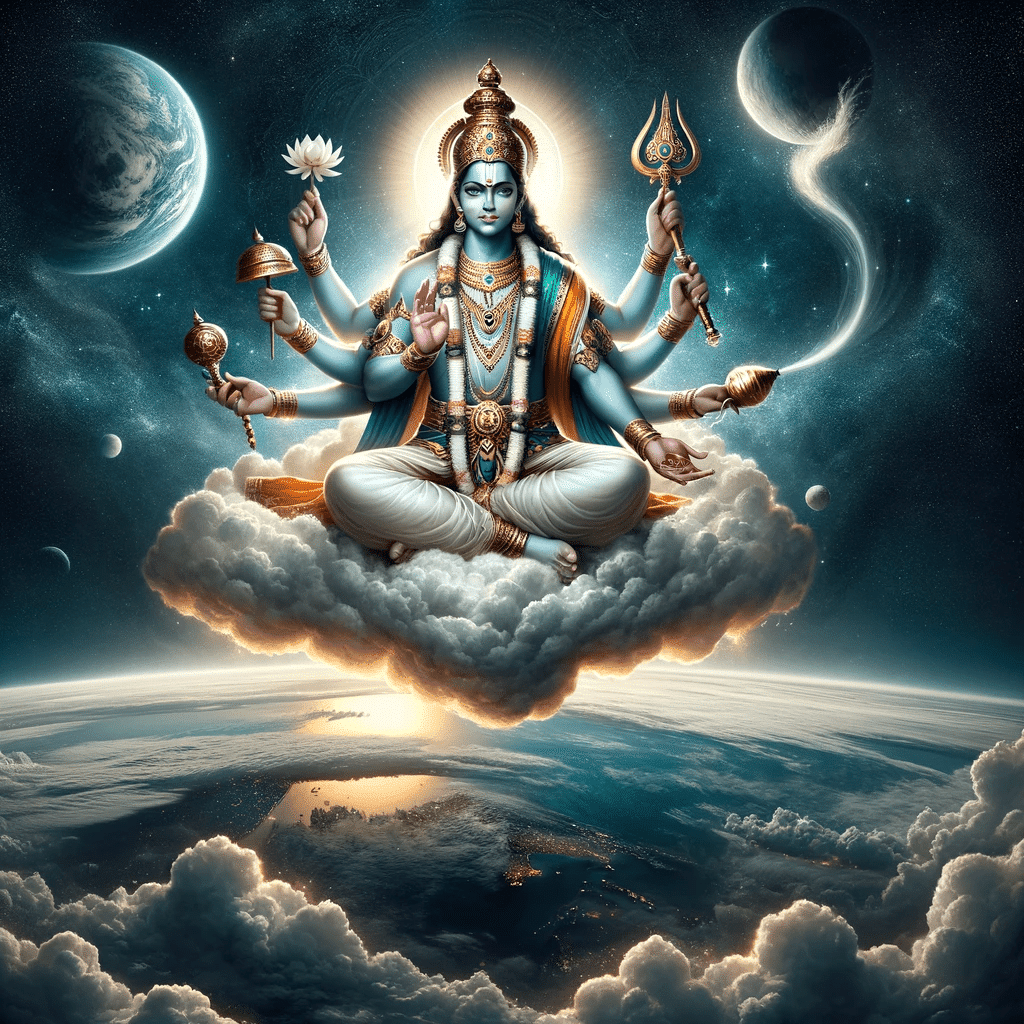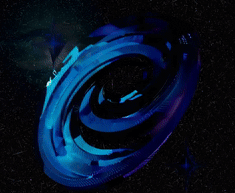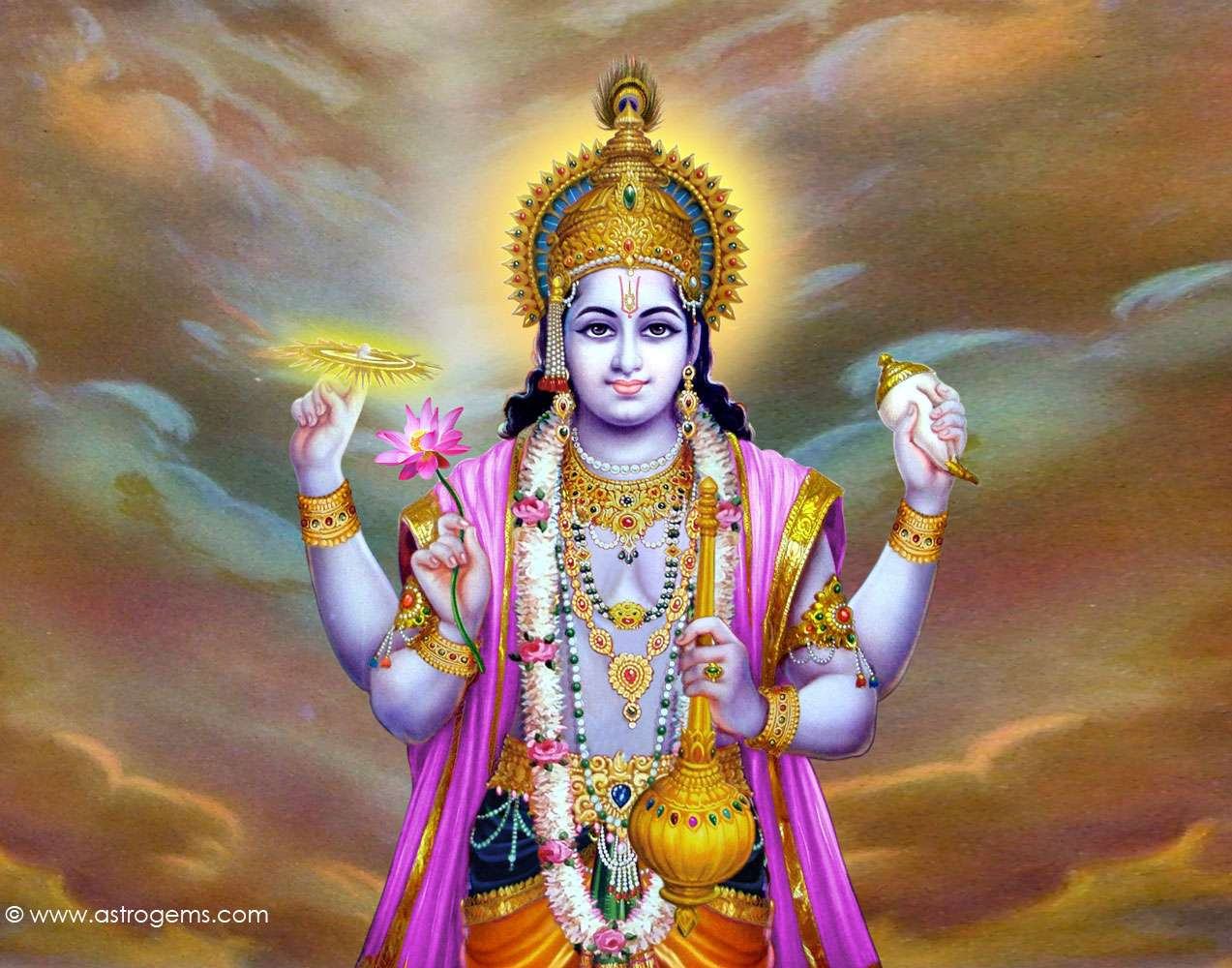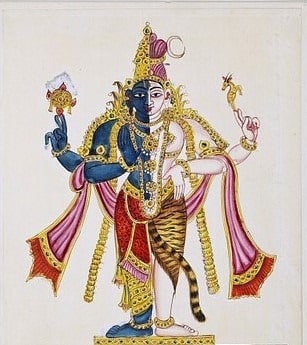
Vishnu is my favorite god, I think he is the best representation of the type of god that sustains the universe out of all the mythologies and religions. Vishnu has light blue skin like clouds, and is eternal powerful; he works in unison with Shiva to maintain the universe. Vishnu lives in Vaikuntha, the realm of eternal bliss and happiness and the resting place for the souls who have attained Moksha, or liberation from Samsara. His abode lies beyond space, time, and the material universe, immeasurable and infinite. He sits on Ananta Shesha, his snake with a thousand heads in an ocean of milk, the Ksheera Sagara. He has ten avatars, or incarnations including Krishna and Rama. His purpose is to rejuvinate Dharma and give the universe sustenance. But he is popularly known as the one to grant Moksha, or release from the material world.
Vishnu is a self-born deity. This again promotes the universe as an infinite expansion-regression system, with neither end nor beginning, which I find fascinating. This coincides with the Jain believe that the universe is infinite and has always been. It also has interesting similarities with Satya, the idea of truth, in that it is immeasurable, immutable, all-pervading, and absolute.
The Rig Vedic texts, one of the oldest existing documents, refer to Vishnu as the sun. Religion is essentially the same in that it is different forms of sun worship. Because if you really stop to think about it, the sun is the source of life for this planet. I think without it, it wouldn’t take long for everything on earth to die. Maybe it would take less than a week.
Vishnu’s ideological figure evolved over time into the consort of Lakshmi, Lord Narayana, Purusha Sooktham, Vishnu Purana, and was made more distinct from Shiva, Brahman, and Surya (the sun god, who sun salutations are devoted to). Hanuman is often seen with Vishnu, in temples dedicated to Rama, Krishna, and Narasimha. Shiva and Vishnu have joined forms in one story, kind of like fusion in Dragonball Z, to form Harihara. Many of the more advanced philosophical Hindu teachers consider the both gods to be different aspects of the supreme being.
Vishnu is a popular god of Buddhism, especially in Sri Lanka, where many shrines are dedicated to him as the protector of Buddhism. He has 10 incarnations, a few notable ones that have associations with yoga poses are: Matsya (Matsyandrasana), Kurma (Kurmasana). He is also Krishna, Rama, and the Buddha. He returns to the universe to kick-ass and destroy demons as Rama, or to eradicate suffering as the Buddha, or to restore balance by saving the world from King Bali. Vishnu has too many names to count.
Vishnu, like many other Hindu gods, has many arms to represent his ability to work simultaneously, his supreme power and existence not bound by space or time. he holds a conch, a chakra, a mace, and a lotus flower in four of his hands when he is depicted, representing the universe, enlightenment, strength and eradication of demons, and divine perfection as an individual unfolds. His flying mount, the eagle garuda, represents the soul and the divine truth of the Vedas.
His godly powers are omniscience, sovereignty, manipulation of energy, strength, vigor, splendor, generosity, and compassion. A lot of these qualities are shown through Krishna, which is probably the most popular form of Vishnu. In AUM, he is the “u” and the vowel sound that rings deeply like ooooo. He sustains and creates.


